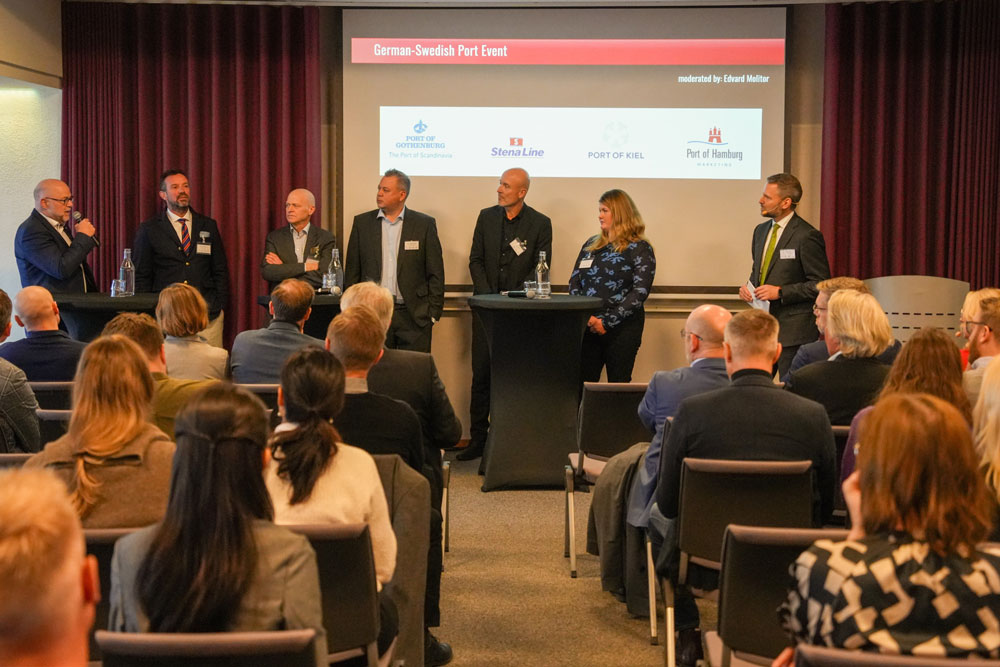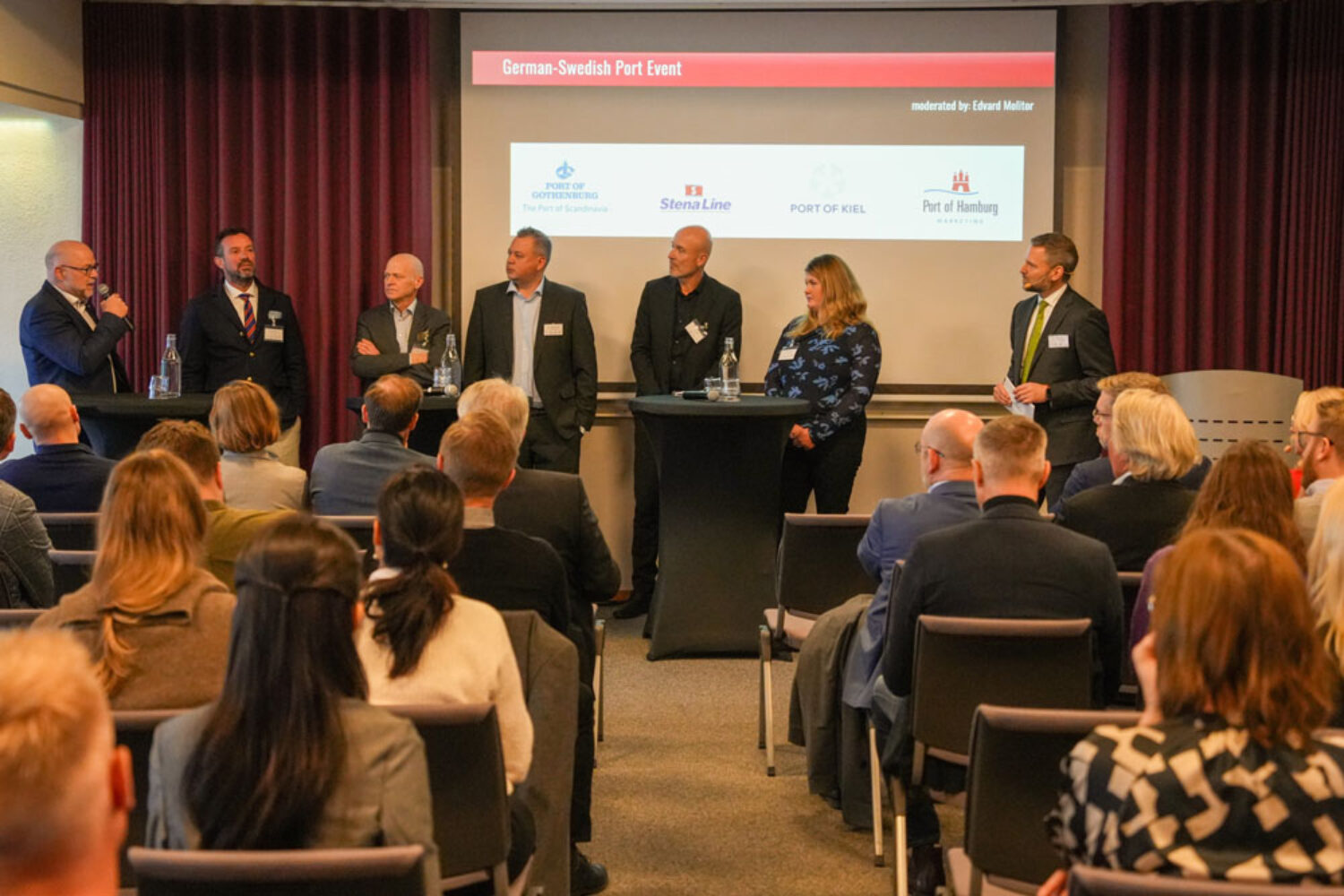Close partnerships between German and Swedish ports and their customers promote sustainable transportation.
A functioning, more environmentally friendly supply chain requires all players to actively participate in the transition to sustainable transportation. The Port of Gothenburg, Stena Line, the ports of Kiel and Hamburg as organizers and many other companies showed how such a chain can be successfully implemented at the conference “Green transport corridors – linking Europe and Scandinavia”, which took place yesterday in Gothenburg.[ds_preview]
Decarbonization needs support from all stakeholders
“The shipping industry is currently under considerable pressure to accelerate the process of decarbonization,” said Marina Basso Michael Regional Director Europe at Port of Hamburg Marketing(HHM). Without help, however, she could not achieve this change. “Decarbonizing transport requires the support of the entire industry, i.e. ports, shippers, forwarders, manufacturers, investors, energy suppliers and political decision-makers,” Basso Michael continued. “The example of Stena Line, the Port of Gothenburg and the Port of Kiel on the Gothenburg-Kiel route shows what is already possible.”
Gothenburg and Kiel connected for 55 years
For 55 years, Stena Line and its ferries have formed the backbone of Swedish-German trade on the Kiel-Gothenburg route. “Any maritime connection is only as strong as the cooperation between all those involved. That’s why we make every effort to find the right solution for each individual requirement – be it accompanied or unaccompanied cargo, project cargo or intermodal solutions,” said Katrin Verner, Freight Commercial Manager at Stena Line. “On the Kiel-Gothenburg route, our customers benefit from a daily frequency that allows them to send their cargo overnight from northern Germany to western Sweden and beyond.” Stena Line is not only testing new alternative fuels such as methanol on this route with the “Stena Germanica“.
Stena Line uses shore power in Kiel and Gothenburg
The shipping company is supported by the ports of Gothenburg and Kiel. The ships on the line have been able to use shore power here for years. At the same time, the port of Gothenburg is used to bunker the methanol. “We welcome the ambitious steps that Stena Line has taken to pave the way for, among other things, shore power, which has been in use for twenty years, and ship-to-ship methanol bunkering,” says Göran Eriksson, Managing Director at the Port of Gothenburg, and adds: “Germany is one of Sweden’s largest trading partners, and the long-standing cooperation between Stena Line, the Port of Kiel, the Port of Hamburg and the Port of Gothenburg has enabled us to offer competitive and sustainable logistics solutions for the industry.”
Port of Kiel can supply up to six seagoing vessels with shore power
Dirk Claus, Managing Director at Port of Kiel, also confirmed that a close and cooperative exchange is the foundation of the German-Swedish success story between Kiel and Gothenburg. “We look forward to working together with our Scandinavian partners on the future of this special transport and logistics route in order to make it even more environmentally friendly, digital and future-proof at all levels.” This also makes the Port of Kiel one of the pioneers in shore-side power supply for ships. The port now has one of the most extensive shore power systems in Europe, which can supply up to six seagoing vessels in parallel. The port aims to be climate-neutral from 2030.
Coordinated action by all stakeholders is important
However, it is not just ports and shipping companies that are needed for a green supply chain. Other logistics service providers such as rail and freight forwarders also play their part, emphasized HHM CEO Axel Mattern during the panel discussion. This is why it is so important to bring all players to the table, added Björn Garberg, National Coordinator for Domestic and Short Sea Shipping at the Swedish Ministry of Transport, and warned: “We need to accelerate the green transition in the maritime industry. All stakeholders must work together and act in a coordinated manner to solve critical issues such as infrastructure maintenance and development.”

Participants in the panel discussion (from left to right): Axel Mattern (CEO HHM), Dr. Dirk Claus (CEO, Port of Kiel), Björn Garberg (National Coordinator, Swedish Transport Administration), Daniel Karlsson (Country Manager Sweden, Ancotrans AB), Mikael Nyman (Senior Sales Manager Scandinavia, CFL cargo Sverige AB) Ida Siggelkow (Environmental Manager, Stena Line Scandinavia AB), Edvard Molitor (Head of International Public Affairs & Sustainability, Port of Gothenburg) © Gothenburg Port Authority / Ahmed













